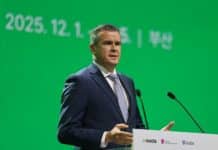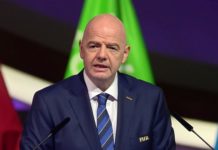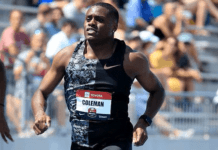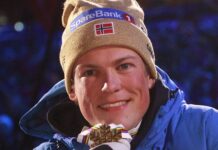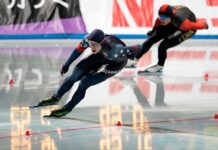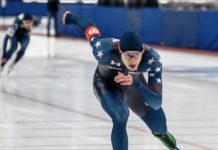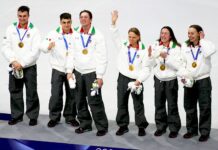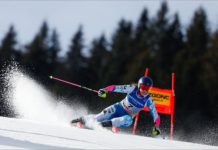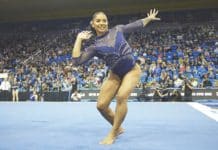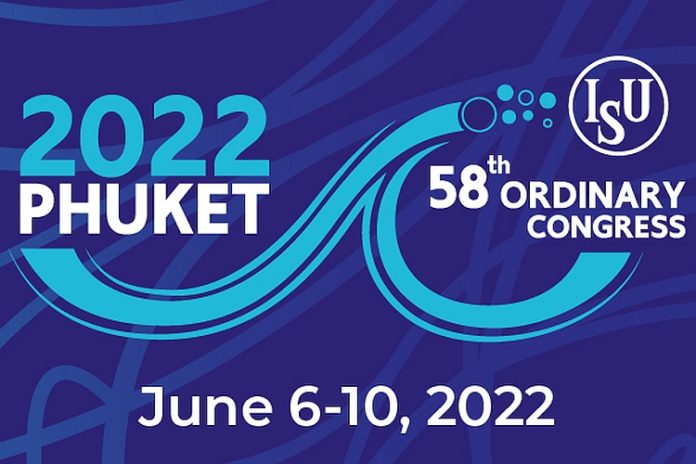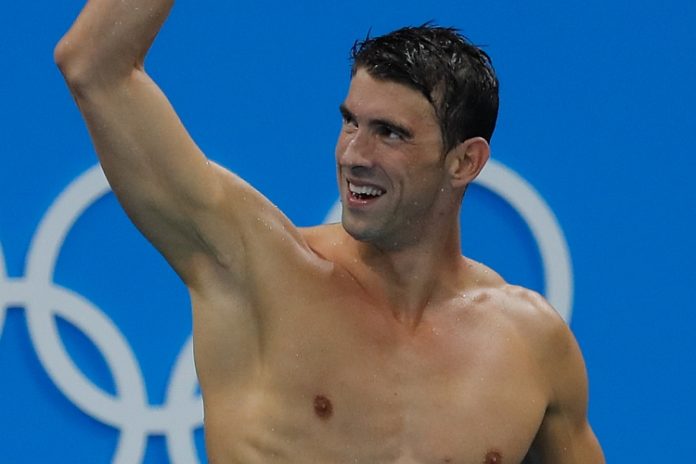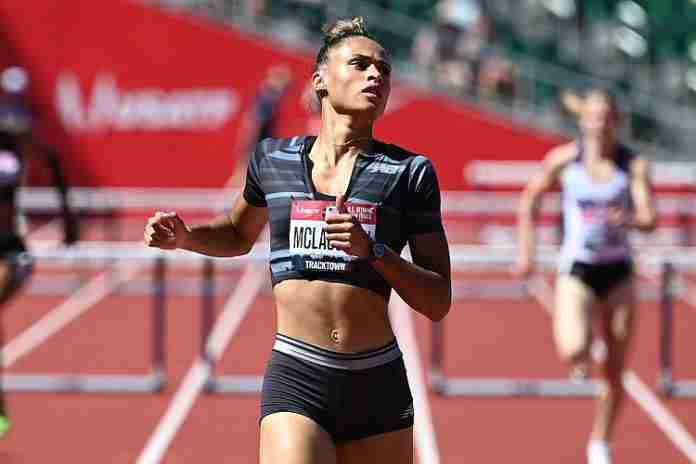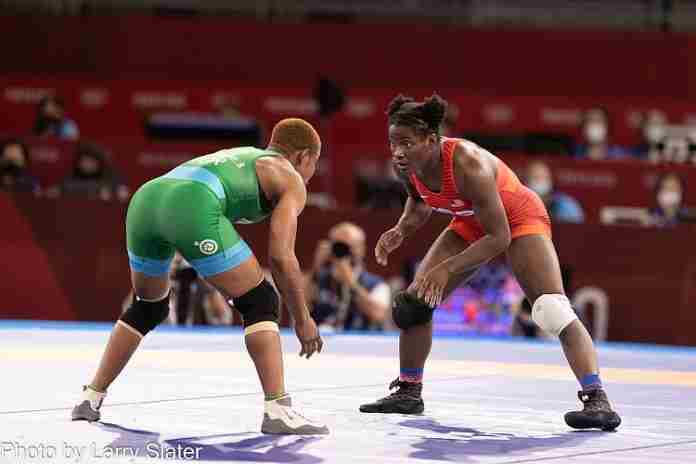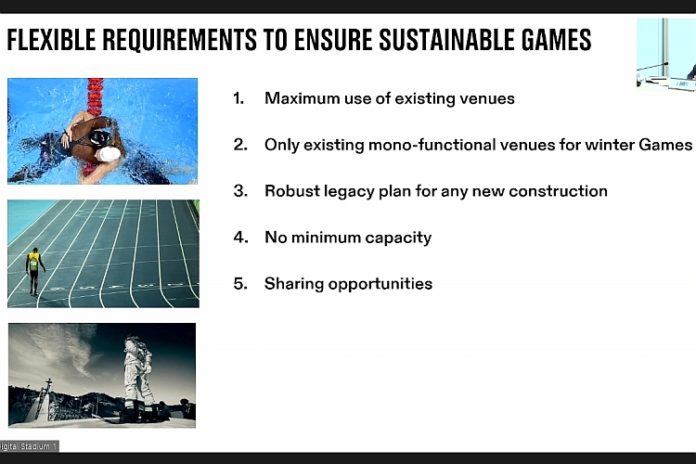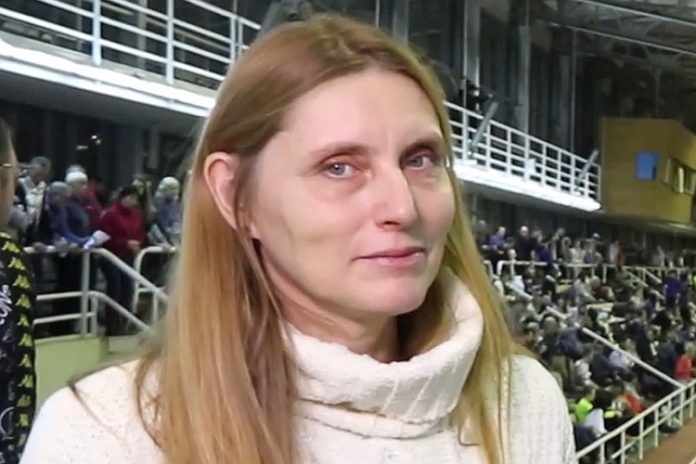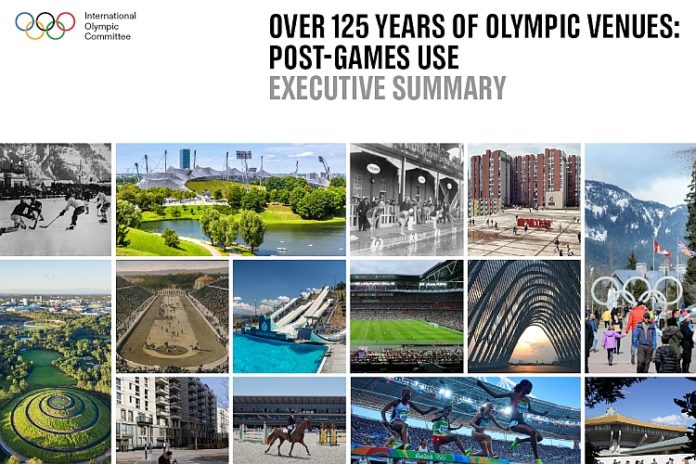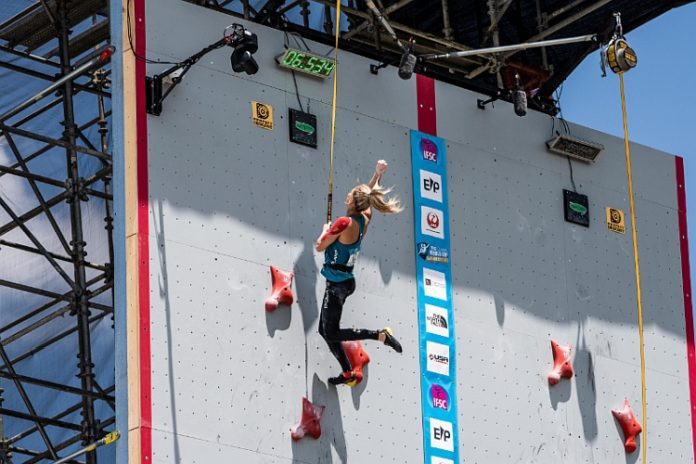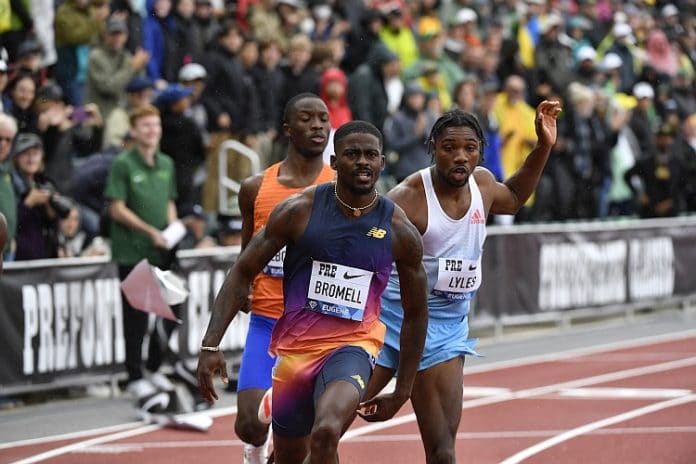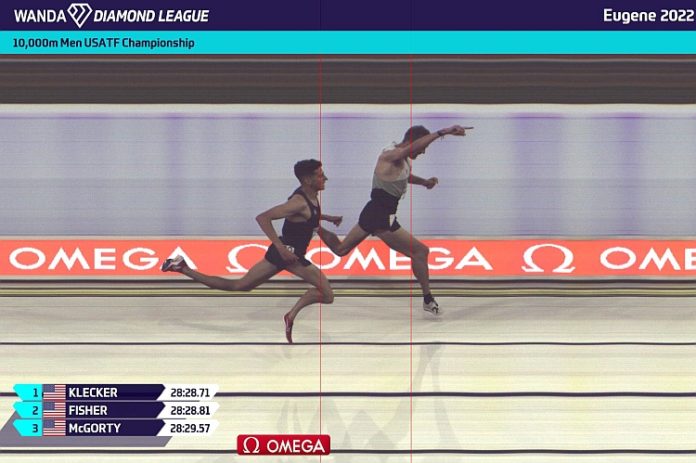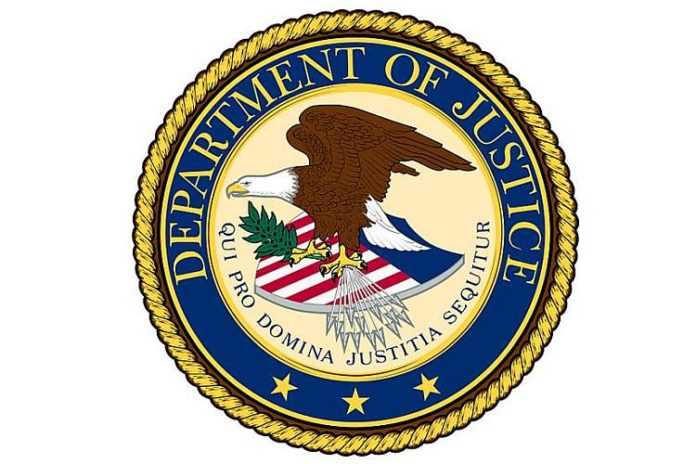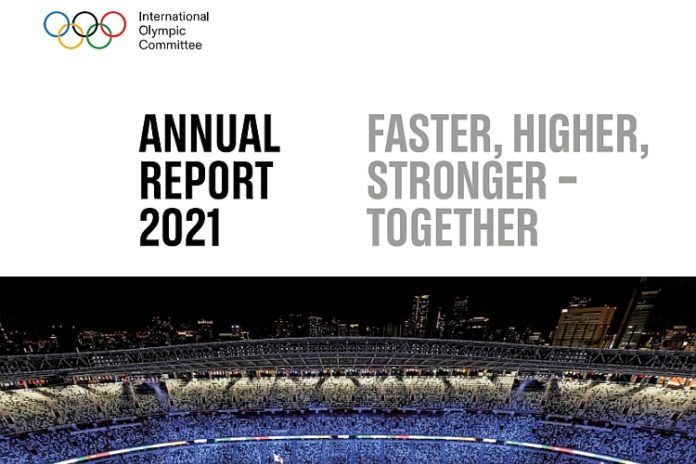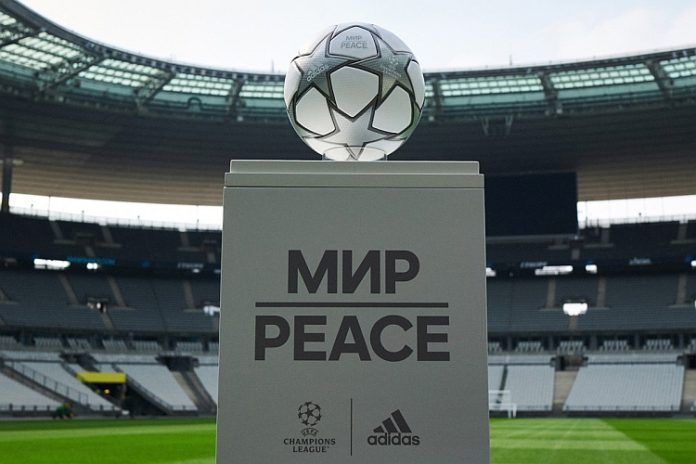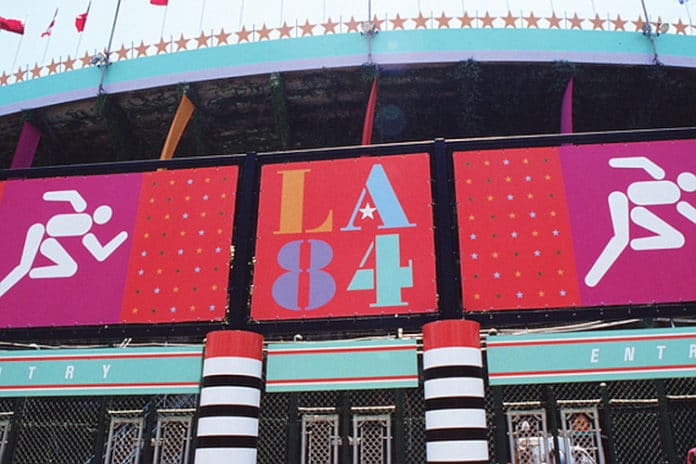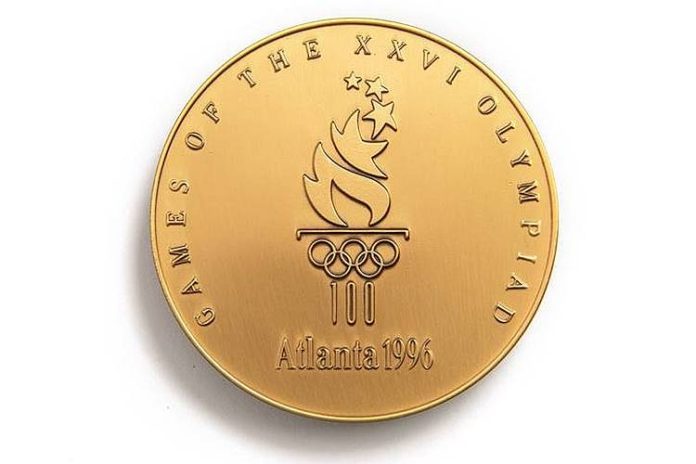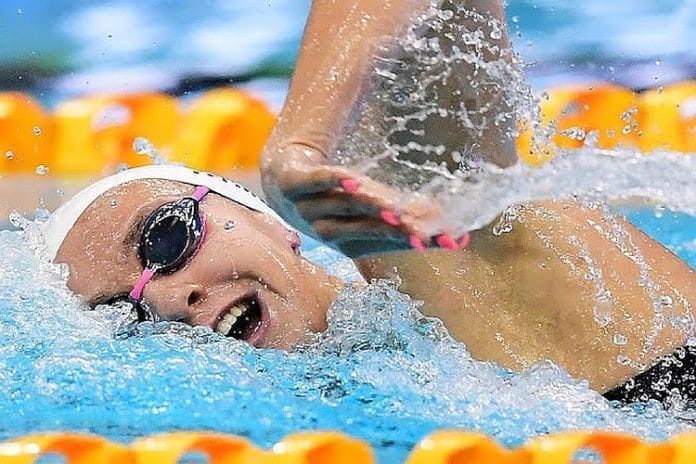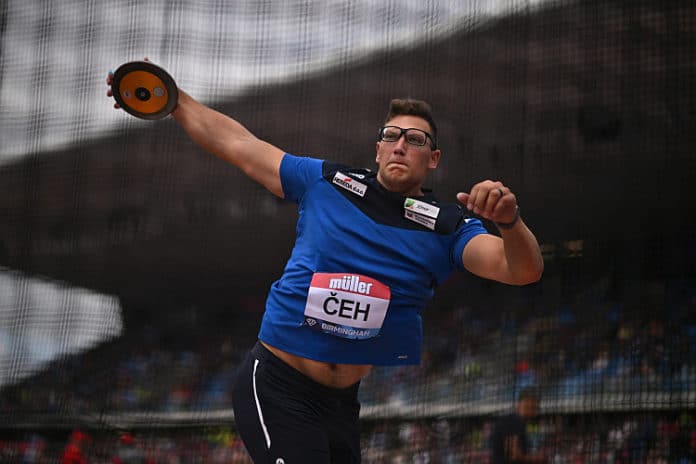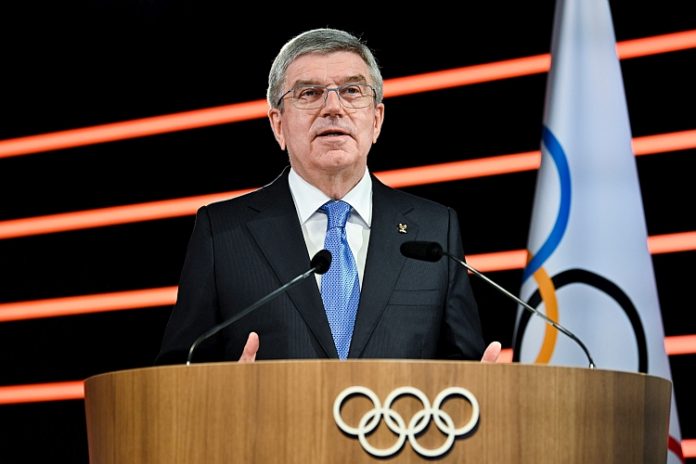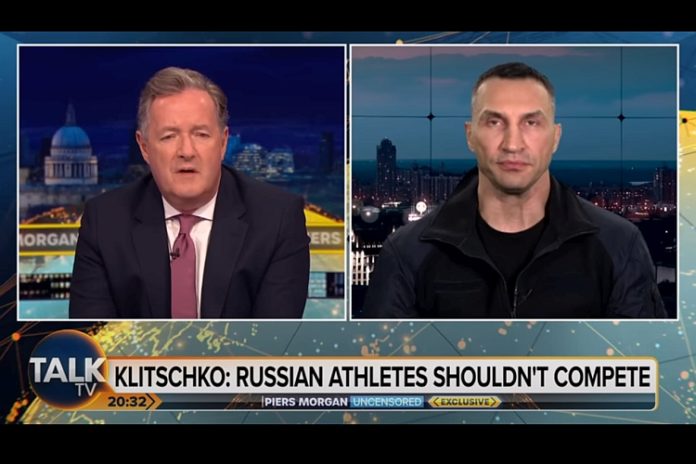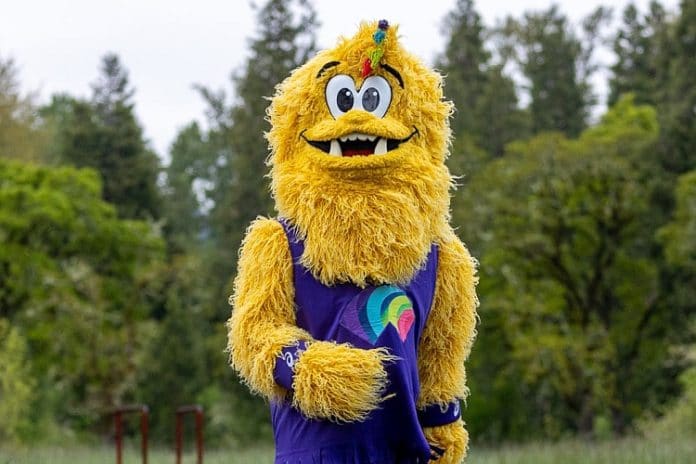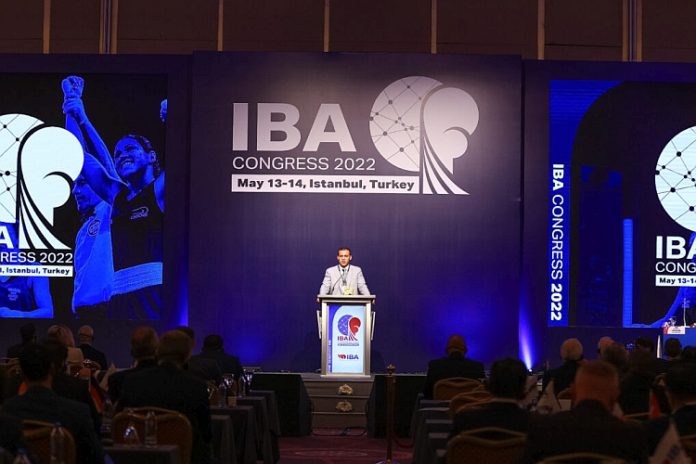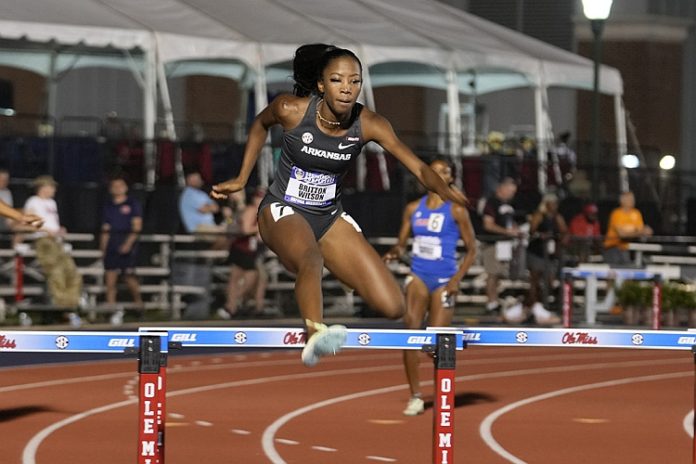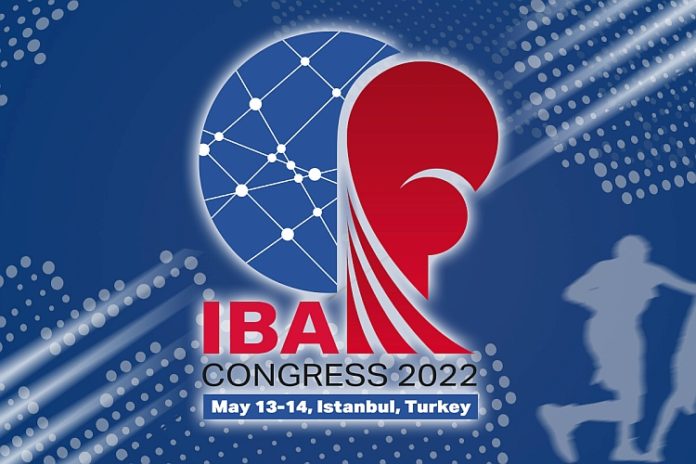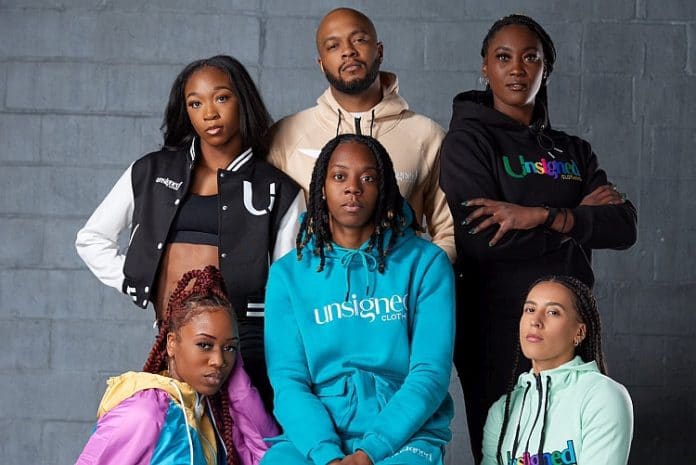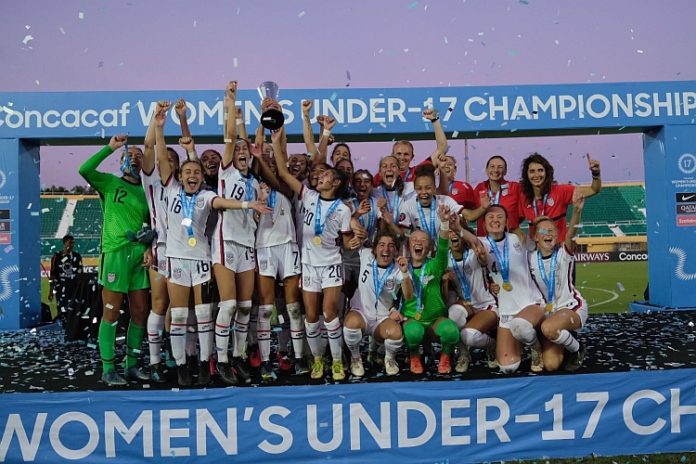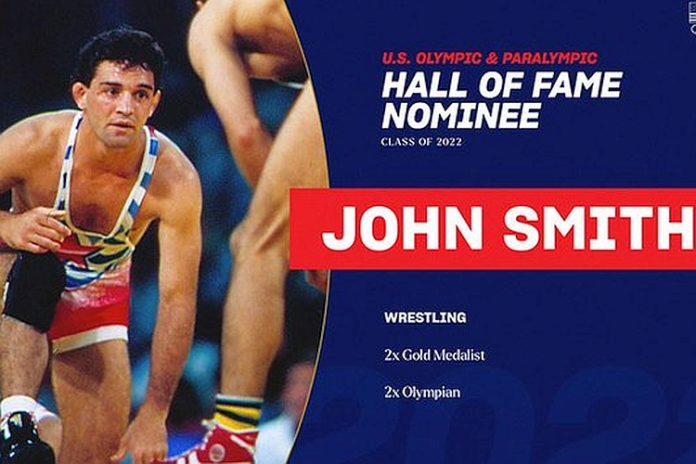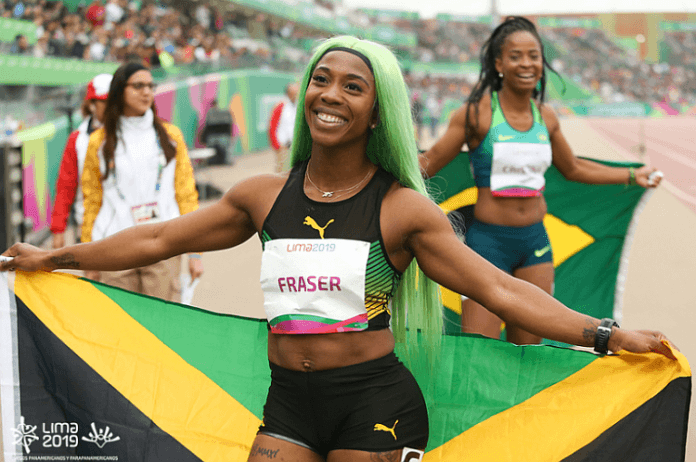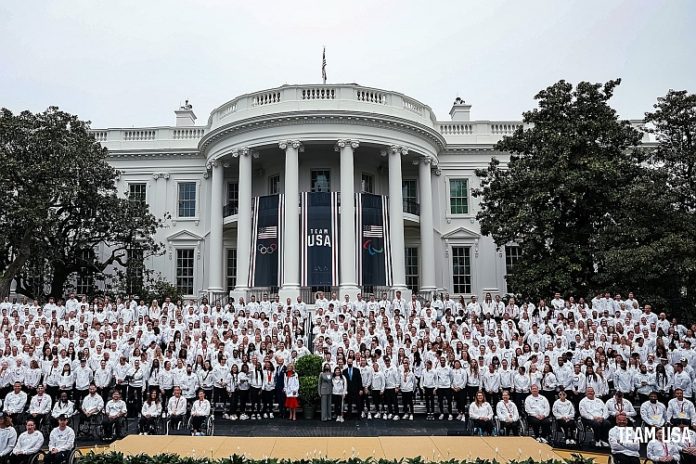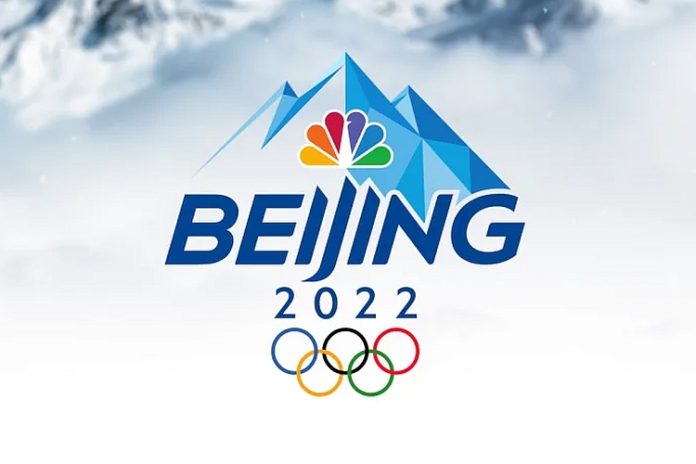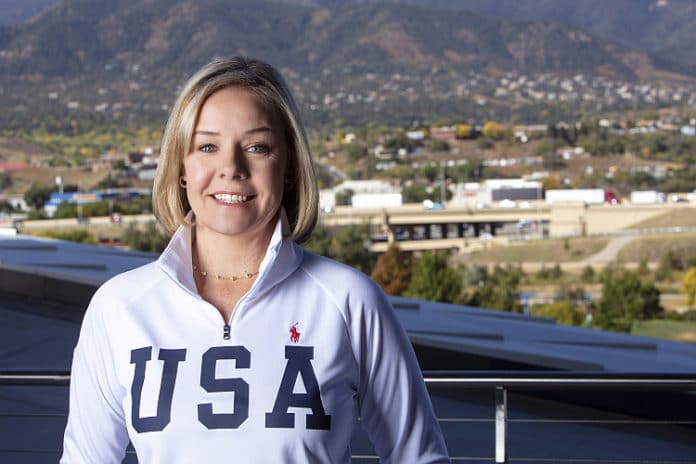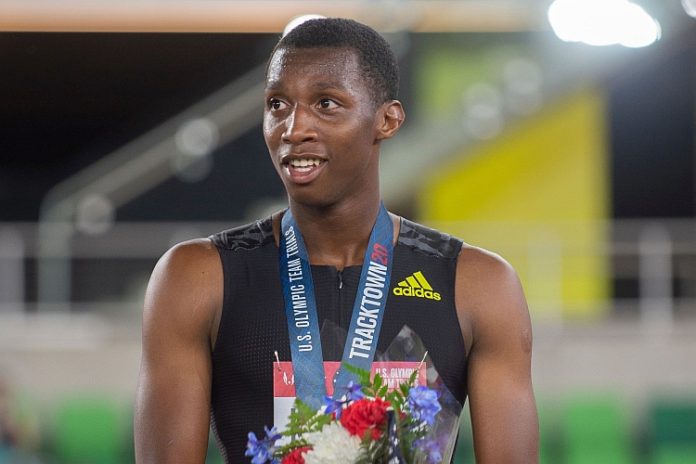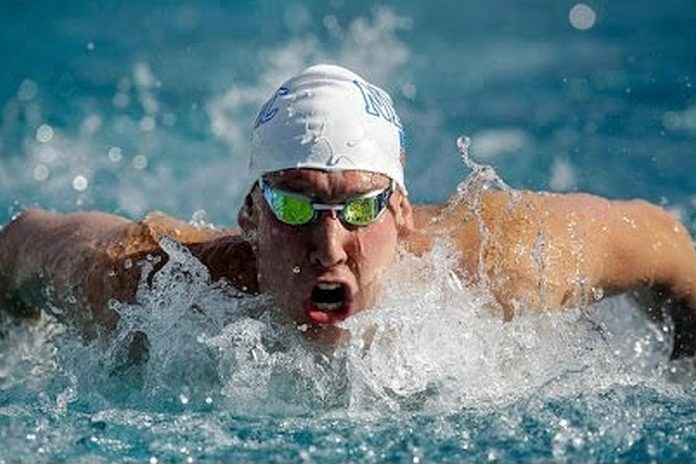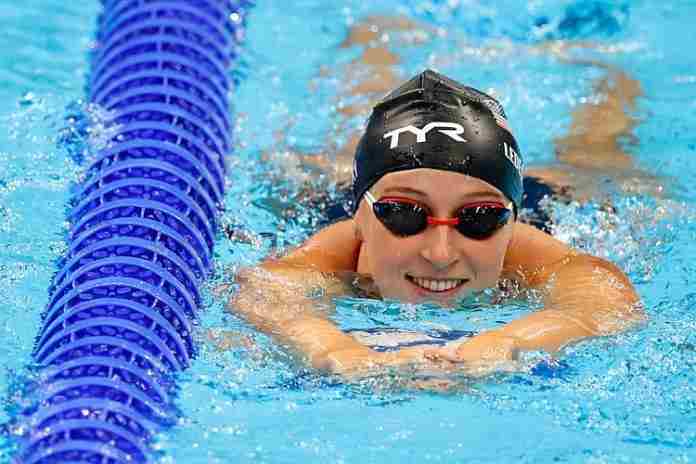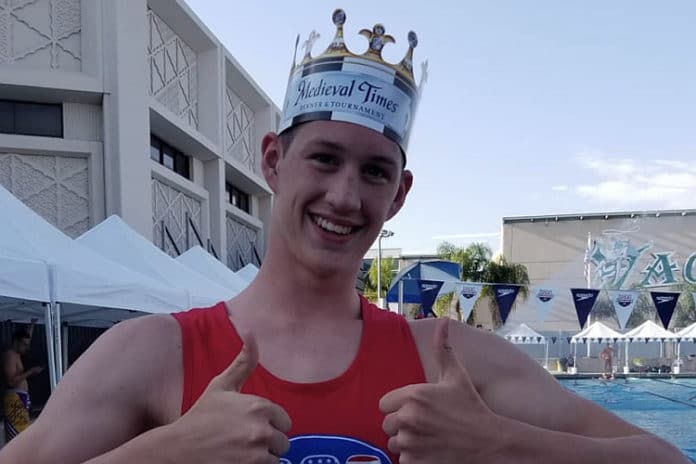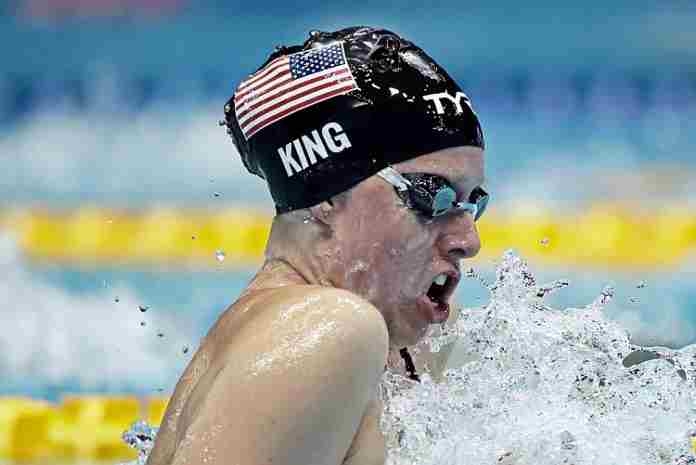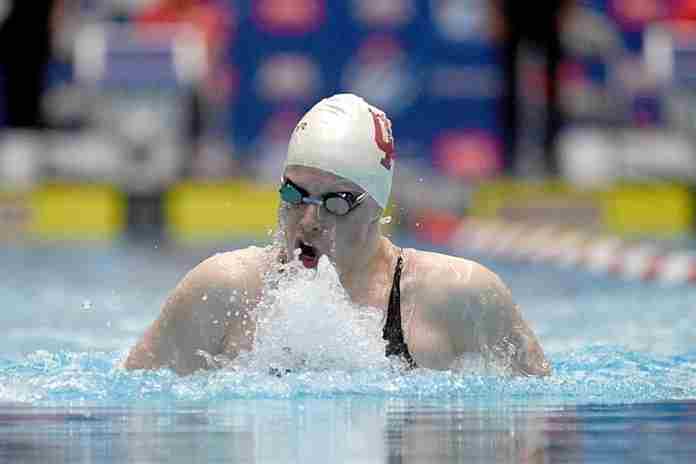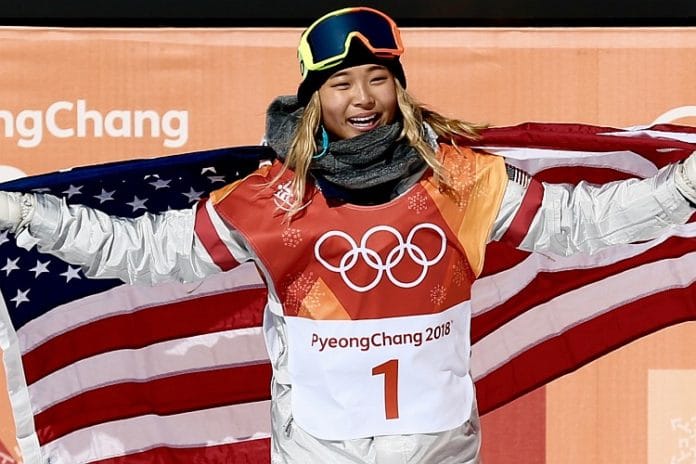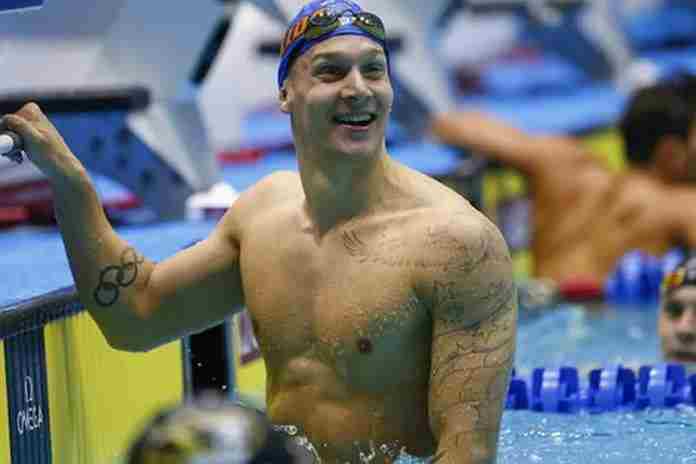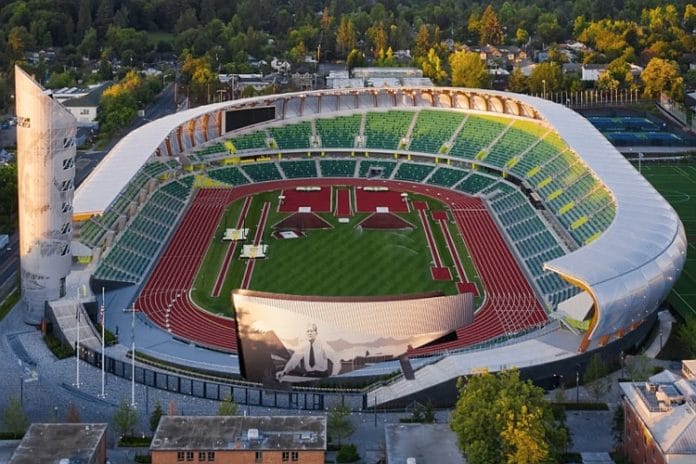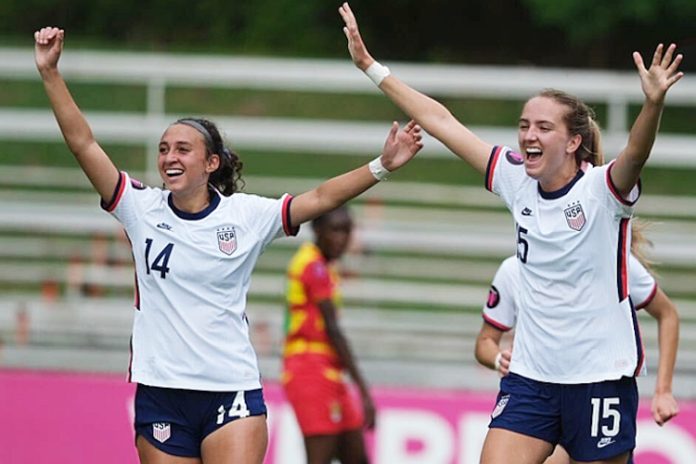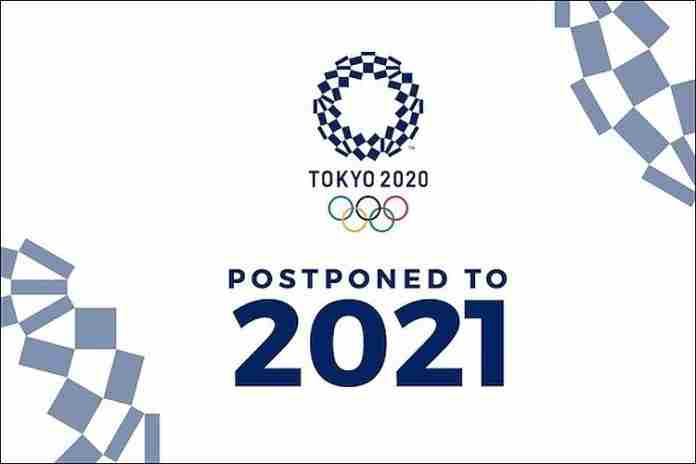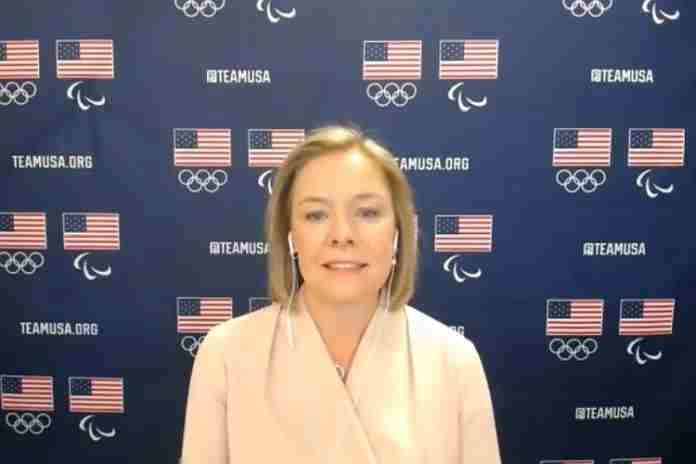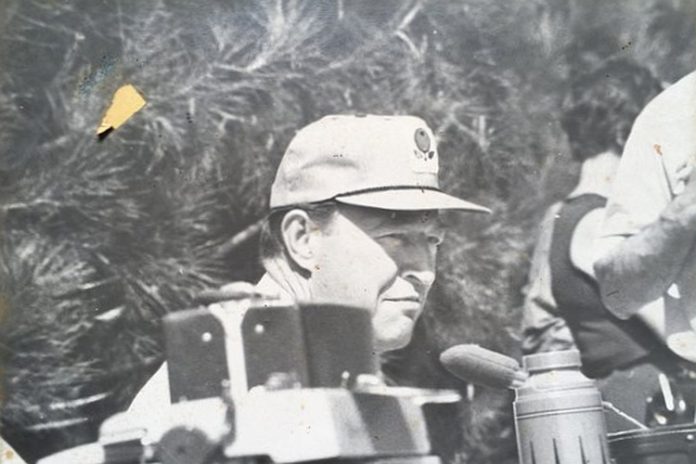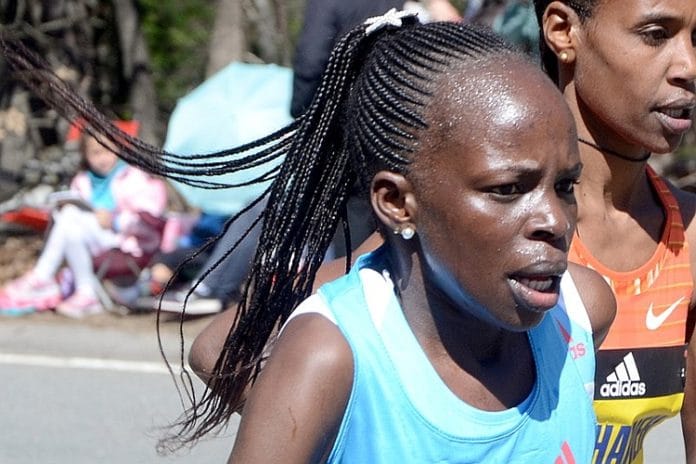(★ Friends: Thanks for your help in keeping this site going. Please donate here if you would like to assist; your support is our inspiration ★)
● Plus: Tokyo 2020: Japanese cities that hosted delegations to get funds for more outreach = Aquatics: FINA announces Athletes’ Committee candidates; only one American = Athletics: Interesting research on the effect of carbon-plate shoes on all events; it’s not easy: Stockholm’s wrong-way marathon and world U-20 record disallowed over no timing-system test = Cycling: LeMond diagnosed with leukemia = Surfing: 2022 World Surfing Games coming to Huntington Beach = Wrestling: new Hall of Famers include four Olympic medalists = SCOREBOARD => Cycling: Van Aert leads at Criterium du Dauphine; Copponi leads Women’s Tour in England = Fencing: More U.S. medals at PanAm Champs = Golf & Tennis: the “medal winners” at the U.S. Women’s Open and French Open ●
The latest news, notes and quotes from the worldwide Five-Ring Circus:
≡ SPOTLIGHT ≡
“The ISU Congress voted in favor of the ISU Council Proposal 22 to gradually increase the age limit for Senior Skaters from 15 to 17 years for the sake of protecting the physical and mental health, and emotional well-being of the Skaters. There will be no change for the season 2022/23. An increase to 16 years for the season 2023/24 and an increase to 17 years for the season 2024/25 and subsequent seasons will then be implemented.”
As a follow-on to the circus surrounding the doping case of Russia’s 15-year-old star, Kamila Valieva in and around the 2022 Olympic Winter Games in Beijing, the International Skating Union voted Tuesday to modify its age rules. The 58th ISU Congress, with more than 250 delegates in attendance, is meeting this week in Phuket (THA) and had multiple proposals on raising the age limit, which had been championed by International Olympic Committee President Thomas Bach (GER), among many others.
The new rule applies not only to figure skating, but also to speed skating and short track, meaning that the age limit for all ISU events will be 17 by the time of the 2026 Winter Games in Milan Cortina (ITA). There are penalties for cheating:
“In case of violation, the ISU Member concerned may lose the right to send Skaters the following season to all Senior and Junior (as the case may be) ISU Championships and International Competitions.”
In response, famed Russian figure skating coach Tatiana Tarasova told the TASS news agency, “They have upped the age and let it be. However, we will continue winning and I see nothing negative about it. However, I see no positive sides as well. It’s just another set of new regulations.”
Beyond the age limit proposals, there were plenty of political questions being considered in Phuket:
● Three Ukrainian proposals to bar or remove Russian and Belarusian delegates from the Congress all failed on secret-ballot votes. A two-thirds majority was required, but was not reached.
● A proposal to increase the age limit for ISU office holders to 80 at the time of election, and that would specifically allow 77-year-old ISU First Vice President Alexander Lakernik (RUS) to be elected to another term, was defeated in a secret-ballot vote.
● Urgent Matter 2 was a proposal to amend the ISU Constitution to allow the ISU Council to impose suspensions on member federations or on individuals specifically in the case of civil unrest or war or other events which impede the activities of the ISU or its member federations. This was defeated, but no change in the status or Russia or Belarus was made, since the ISU’s ban on Russian and Belarusian competitors was based on the existing “exceptional circumstances” provision of Article 17.1.q of the ISU Constitution.
A series of proposals to allow advertising patches on skating outfits was sent back to committees for further debate, but to return for a vote on Friday.
The Congress continues through Friday, when elections will be held for multiple offices, including for ISU President.
≡ THE 5-RING CIRCUS ≡
● Games of the XXXII Olympiad: Tokyo 2020 ● Even with Covid, 250 Japanese cities and towns hosted about 8,000 athletes and staff prior to the Tokyo Games, and 35 actually hosted delegations after the Games were completed.
On Monday, Kyodo News reported that these cities and towns “will be eligible for new subsidies aimed at promoting people-to-people exchanges with their respective partner countries” according to government sources.
The new program is expected to start in 2023 and be administered by the Japan Sports Council, using funds from soccer lotteries.
The idea is to extend the legacy of the Tokyo Games and connect the towns with their guests, with whom they had limited contact due to the pandemic.
● Aquatics ● FINA announced the candidate list for its Athletes’ Committee, with 29 individuals running for 20 spots.
There are plenty of familiar names, including swimmers Katinka Hosszu (HUN), Alia Atkinson (JAM) and Matt Sates (RSA), divers Tingmao Shi (CHN) and Jack Laugher (GBR) and open-water stars Ana Marcela Cunha (BRA) and Ferry Weertman (NED).
Only one American is running: four-time World Championships medalist Bill May in Artistic Swimming.
Voting will take place at the upcoming FINA World Aquatics Championships in Budapest (HUN); swimmers will vote from 16-25 June and all other disciplines from 16-28 June.
● Athletics ● Veteran British coach and educator Peter John L. Thompson created a fascinating study of the impact of carbon-plate footwear on performance, using world-list data from 2015-21. Published by Track & Field News, the data shows:
“Carbon-plated track & field spikes specifically provide a fatigue-resistant performance enhancement to athletes through two potential sources:
“1. An external, metabolic-sparing kinetic energy return
“– most relevant to improving Running Economy in Endurance: 800m – Marathon
“2. Power amplification through the timing of an external kinetic energy return
“– most relevant in the force production phase of the ‘Power’ events: Sprints, Hurdles, Jumps, Throws and Combined Events.”
So all events are affected, not just endurance. But Thompson’s research shows a significant impact for races from 800 m to 10,000 m on the track, and impacts in the sprints for women (but not men) and in the hurdles for both men and women.
In the field, no clear advantage is shown in men’s jumps, but there is a performance increase for women. Same for the throws, with women showing marked improvements on the Shot and Hammer and less in the others.
The bottom line: “There is no disputing the significant impact of Carbon-plated spike technology on the running events. The other event groups show some impact but not such a consistent picture.”
¶
It isn’t easy managing a track meet or a road race.
At the Stockholm Marathon on Saturday (4th), men’s race leaders Felix Kirwa (KEN), Tesfaye Lencho Anbesa (ETH) and Merhawi Kesete (ERI) were at about the 30 km mark, when they continued to follow the lead car instead of motorcycles who were supposed to lead through a viaduct where automobiles are not allowed.
The mistake was recognized about a minute later and the trio had to backtrack and re-join the course, by which time they had lost the lead. But Kirwa surged again and won in 2:11:08, followed by Kesete (2:11:45) – both running about an extra 1,000 m – but Anbesa dropped out.
Race director David Fridell explained that the communications between the lead car, the motorcycles and the course marshals got fouled up. “We have to think further about how we ensure that the critical situations are not only double- and triple-checked in the future, but also quadruple-checked.”
On 30 April, Botswana’s 18-year-old Letsile Tebogo won the men’s 100 m on home soil at the Gaborone International, running 9.96 with a legal, +1.9 m/s wind to break the World U-20 Record of American Trayvon Bromell (9.97) from 2014.
Nope.
World Athletics did not ratify the mark, citing Rule 31.7.3: which requires that a record application must include “In the case of a Track World Record where Fully Automatic Timing was in operation, the photo finish and zero control test images”
No zero control test images, a procedure to ensure that the timing system is functioning correctly prior to the race, so the mark was not approved. From the Botswana Weekend Post:
“In an interview, Oabona Theetso, the vice president of the [Botswana Athletics Association], said that the association is responsible for the technical issues that occurred during the event. He also noted that no one will be held accountable for the negative effects of the issue. ‘It’s a lesson learned, so we shall avoid repetition of such adversities going forward,’ Theetso noted.”
It’s not easy.
(Thanks to reader Brian Russell for the reminder on the record issues with Tebogo’s mark.)
● Cycling ● Three-time Tour de France winner Greg LeMond, 60, revealed “I have been diagnosed with Chronic Myelogenous Leukemia. Fortunately, it is a type of cancer that is treatable, and it is a type of leukemia that is not life-threatening or debilitating.”
He found out about the diagnosis after feeling fatigued. “Following a series of tests and a bone marrow biopsy, which was completed last week, I received my formal diagnosis last Friday. My doctors at the University of Tennessee, with consultation from a team at the Mayo Clinic, have outlined a chemotherapy protocol which will begin this week.
“The long-term prognosis is very favorable. I am fortunate to have a great team of doctors and the full support of my family, friends and colleagues at LeMond Bicycles.”
LeMond was the first American to win the Tour, in 1986 and then again in 1989 and 1990. He remains the only official American winner after wins by Lance Armstrong and Floyd Landis were disallowed for doping.
● Football ● One of the shocking results of the weekend was that a game was not played.
Sunday’s Panama vs. Canada friendly in Vancouver was canceled two hours prior to kickoff as the Canadian men’s National Team refused to play in a continuing contract dispute with the Canada Soccer governing body.
Sound familiar? Yep, this is the northern sequel to the now-settled tug-of-war between U.S. Soccer and its men’s and women’s teams.
The Canadian men posted an open letter, noting the team’s historic qualification for its first FIFA World Cup since 1986, and asking “Where is the money?” Calling relations with the federation “strained for years,” the letter states, “It’s time we take a stand for the future of soccer in Canada.”
In specific, the team is asking for details of the federation’s marketing agreement with an outside firm, better sponsorship sales, an equal contract with the Canadian women’s team, 40% of the FIFA prize money for the upcoming World Cup and other items.
The Canadian women’s team is also in negotiations with the federation, since January, and objects to the men’s proposal of equivalent shares of FIFA’s World Cup payouts, since the women’s prize purse is much, much smaller. (The U.S. teams solved this issue by combining the men’s and women’s FIFA payments into a pool and taking an equivalent percentage; a gift by the men’s team to the women.)
So now the rift is out in the open and the next question is whether the Canadian men will show up for their CONCACAF Nations League games on 9 June vs. Curacao in Vancouver and 13 June at Honduras. Both sides say they are open to negotiating, but what about Canada’s preparation for its first World Cup in 36 years?
● Gymnastics ● The Federation Internationale de Gymnastique adopted a new, seven-page Code of Conduct “aimed at promoting a positive culture based on fundamental principles of integrity, respect, honesty and fairness in the sport of Gymnastics.”
FIG President Morinari Watanabe (JPN) explained: “We cannot change years of bad practice in the sport overnight. While in some parts of the world, new generations of practitioners, coaches and executives developed approaches based on respect and wellbeing, abusive training methods still prevail in some places, with the strong conviction that it is part of the path to success. That cannot prevent us as the governing body from setting up standards applicable everywhere, and by so doing, reminding everyone that they have rights, duties and responsibilities.”
The new Code covers everyone involved in a gymnastics event, right down to any accredited person or volunteer. Starting with a commitment to “Behave with courtesy and politeness,” there are 10 prohibitions that apply to all:
“● Refrain from unsportmanslike language or conduct.
● Strictly refrain from any behaviour that could constitute, encourage or incite any form of
harassment, violence, abuse or otherwise cause harm. This includes physical, sexual and
psychological misconduct.
“● Abstain from any bullying or abusive language or behaviour towards others in person,
electronically or on any social media platforms, whether in a private or public form.
“● Abstain from any kind of demonstration or political, religious or racial propaganda in any
Gymnastics competitions.
“● Proactively address abusive, bullying, manipulative or threatening language or behaviour and report any concerns of abuse or neglect of a Participant to the appropriate authorities
promptly.
“● Uphold the highest principles of fair play on and off the training and competition field and accept the results of competition with dignity.
“● Refuse any bribes.
“● Abstain from any betting activity, any attempt to manipulate results, or participate in any other form of dishonest, fraudulent or illegal activity.
“● Refrain from any abuse or misuse of your position of trust, power or influence.
“● Uphold the values of clean sport and never assist, advocate or condone the use of illicit drugs or other banned performance-enhancing substances or methods.”
There are additional sections relating to athletes, coaches, judges and officials and executive officers of federations. The “Coach-specific Principles” include, in part:
“● Never overrule medical and paramedical experts, and to respect medical advice regarding athletes suffering from any illness or injury, mental health conditions, or in prescribed treatment, in a recovery protocol or who are returning to training.
“● Refrain from any inappropriate, insensitive, hurtful, mocking or critical comments or behaviour regarding the athlete’s physical appearance, body shape or weight.
“● Treat all athletes with equity, respect, and fairness and avoid any kind of conflict of interest, impropriety, or favouritism.”
Cynics will observe that the proscription against challenging medical experts could leave the door open for abusers like Larry Nassar, who committed his crimes while acting as a team physician for USA Gymnastics.
● Surfing ● The International Surfing Association announced that the 2022 World Surfing Games will return to Southern California and Huntington Beach from 17-24 September.
It will be the fourth time that the event will be held in the cradle of surfing, after editions in 1984, 1996 and 2006. And it will be an important event for the Los Angeles 2028 organizers to see and evaluate; surfing was one of three sports added to the LA28 program which were not part of the bid package when Los Angeles was selected in 2017 (boxing, modern pentathlon and weightlifting were included, but are not currently on the program for 2028).
So a site for surfing must be found, as well as for skateboarding and sport climbing; the World Surfing Games experience will help with that selection, but the placement in Huntington Beach is no guarantee that the 2028 events will be held there.
● Wrestling ● The National Wrestling Hall of Fame inducted 10 new members over the weekend, including four Olympic medal winners.
The inducted medalists included Clarissa Chun, the 2008 World Champion at 48 kg and the London 2012 Olympic 48 kg bronze medalist; Sara McMann, the 2004 63 kg Olympic silver medalist and a three-time World Championship medal winner in 2003-05-07; Andy Rein, the 1984 Olympic Freestyle silver medalist at 68 kg, and Jake Varner, the London 2012 96 kg Freestyle gold medalist.
≡ SCOREBOARD ≡
● Cycling ● At the Criterium du Dauphine in France, the 169 km stage three – with a major mid-race climb and an uphill finish to Chastreix-Sancy – proved to be a mass sprint to the finish, with David Gaudu (FRA) getting the win over Wout van Aert (BEL) and Victor Lafay (FRA), with the first 27 riders timed in 4:09:38. Van Aert is the overall leader, sex seconds up on Gaudu and 12 seconds ahead of Lafay.
¶
At the Women’s Tour in Great Britain, the second stage was a fairly flat, 92.1 ride in and around Harlow and Dutch star Lorena Wiebes got the line first in the mass sprint to the line. It’s her fifth Women’s World Tour win this season, with Italy’s Barbara Guarischi and Shari Bossuyt (BEL) close behind. American Coryn Labecki was fifth.
France’s Clara Copponi remains the leader, by 0:03 over Maike van der Duin (NED) and 0:04 over Wiebes.
● Fencing ● The U.S. continued its strong showing at the Pan American Championships in Asuncion (PAR), winning two golds and two silvers in the men’s and women’s Foil events.
Rio silver medalist Alexander Massialas won his first PanAm Championships title after four silvers and a bronze between 2010-15, defeating Canada’s Maximillien van Haaster in the final by 15-13. Americans Gerek Meinhardt and Nick Itkin – both members of the Tokyo 2020 Team bronze medalists – won individual bronzes in Asuncion.
That trio, and Chase Emmer, won the men’s Team title, defeating Canada, 45-25, in the gold-medal match.
Canada’s Eleanor Harvey scored an upset win in the women’s Foil final, edging Olympic gold medalist Lee Kiefer of the U.S., 15-11. American Jacqueline Dubrovich and Canadian Jessica Guo won bronzes. Guo, Harvey, Sabrina Fang and Kelleigh Ryan won the Team title, turning back Kiefer, Dubrovich, Zander Rhodes and Maia Weintraub, 45-37, in the championship final.
The PanAms continue through Wednesday.
● Golf ● Lots of coverage of Minjee Lee and her four-stroke win in the U.S. Women’s Open at Southern Pines, North Carolina over the weekend, but it’s worth looking at the nations who had golfers in the top 10.
Australia’s Lee grabbed the lead and held it with rounds of 67-66-67 before a final-round 71 (-13: 271). She finished comfortably head of American Mina Harigae (275) and Koreans Hye-jin Choi (277) and Jin Young Ko (278) and New Zealand’s Lydia Ko (279).
The U.S. got two more places in the top 10 with Nelly Korda and Megan Khang tying with Ireland’s Leona Maguire for eighth (282); Sweden’s Anna Nordqvist and England’s Bronte Law tied for sixth (280).
● Tennis ● The big wins by Rafael Nadal (ESP) and Iga Swiatek (POL) at the French Open were widely publicized, but there were other medals handed out.
While Nadal defeated Casper Ruud (NOR), 6–3, 6–3, 6–0, the “bronze medals” went to Alexander Zverev (GER) and Marin Cilic (CRO). This was Nadal’s 14th French Open title and 22nd win in a Grand Slam tournament, the most ever.
Swiatek extended her winning streak to 35 matches by defeating Coco Gauff of the U.S., 6–1, 6–3, with the “bronze medals” to Daria Kasatkina (RUS) and Martina Trevisan (ITA).
The men’s doubles was won by Marcelo Arévalo (ESA) and Jean-Julien Rojer (NED) over Ivan Dodig (CRO) and American Austin Krajicek, 6–7, 7–6, 6–3. The semifinalists were Marcel Granollers (ESP) and Horacio Zeballos (ARG) and Rohan Bopanna (IND) and Matwe Middelkoop (NED).
The home team of Caroline Garcia and Kristina Mladenovic (FRA) won the women’s Doubles over Gauff and Jessica Pegula (USA), 2–6, 6–3, 6–2. The semifinal losers were
Madison Keys and Taylor Townsend (USA) and Lyudmyla Kichenok (UKR) and Jelena Ostapenko (LAT).
In the mixed doubles, Ena Shibahara (JPN) and Wesley Koolhof (NED) won over Ulrikke Eikeri (NOR) and Joran Vliegen (BEL), 7–6, 6–2. The semifinalists were Nicole Melichar-Martinez (USA) and Kevin Krawietz (GER) and Gabriela Dabrowski (CAN) and John Peers (AUS).
If scored as an Olympic-style medal table, the U.S. would have scored four medals to lead all countries, with semifinal losers earning a tie for the bronze.
You can receive our exclusive TSX Report by e-mail by clicking here. You can also refer a friend by clicking here, and can donate here to keep this site going.
For our updated, 620-event International Sports Calendar for 2022 and beyond, by date and by sport, click here!







